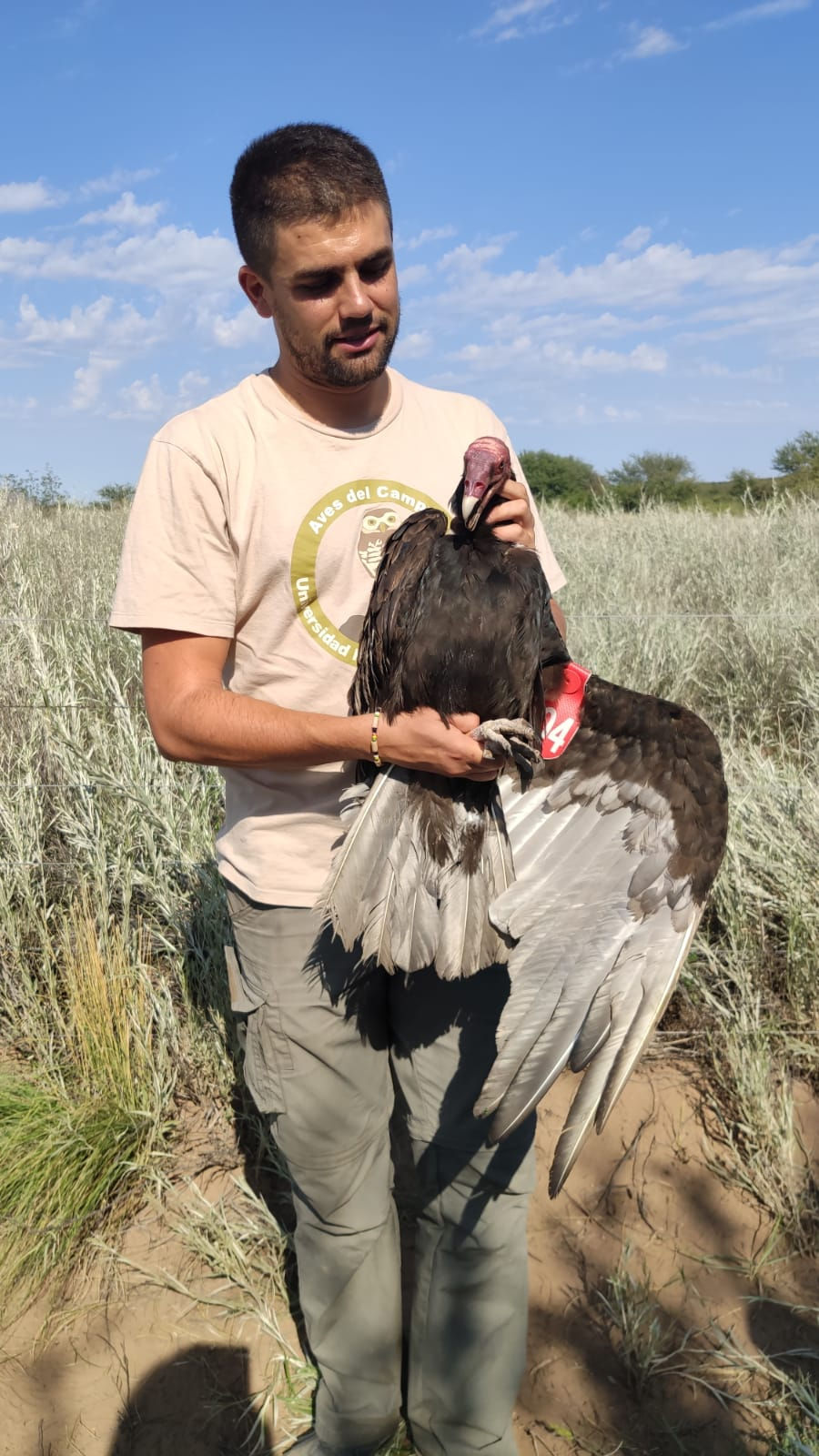Congratulations to the 2023 Beingolea Raptor Research Grant winners!
- IBCP

- Nov 13, 2023
- 3 min read
Updated: Nov 17, 2023
13 November, 2023

Carlos Ale, 2023 Oscar Beingolea Raptor Research Grant winner (first place).
IBCP is delighted to join the Raptor Research Foundation in congratulating Carlos Ale, Alan Monroy Ojeda, and Diego Gallego García on winning 2023 Oscar Beingolea Raptor Research Grants! Beingolea Grants are made once a year by the Raptor Research Foundation following an annual competition to projects advancing raptor research and/or conservation in Latin America. First place winner Carlos Ale is investigating Barn Owls (Tyto alba) as natural rodent control in areas with high risk of hantavirus in northern Andean forests of Patagonia, Argentina. His work seeks to facilitate the recognition of owls and their benefits in terms of the ecosystem services they provide to local rural and suburban communities and to reduce risk of hantavirus and other zoonotic diseases. To this end, Carlos is conducting surveys of owl species richness and relative abundance in the study area and investigating owl food resources. He will also implement environmental awareness and education strategies based on local knowledge, perceptions and attitudes, and conduct owl habitat restoration activities.

Alan Monroy Ojedo, 2023 Oscar Beingolea Raptor Research Grant winner (second place).
Starting this year, the Raptor Research Foundation generously provided additional funding that has enabled the Beingolea Grant committee to fund multiple projects rather than just one. The committee thus selected two additional projects to fund from the pool of applicants, based on a tie in the rankings for second place. Second place Beingloea Grant winner Alan Monroy Ojeda submitted a proposal to validate species distribution models and conduct community-based field monitoring of the Harpy Eagle (Harpia harpyja) and King Vulture (Sarcoramphus papa) in Mexico. Both Harpy Eagles and King Vultures are recognized as endangered species in Mexico, and both depend on large tracts of protected tropical forest. Harpy Eagles are designated by the IUCN as vulnerable to global extinction, and King Vultures have disappeared from most of their original distribution in Mexico. A member of the IUCN Vulture Specialist Group, Alan is petitioning the IUCN to consider assessing the King Vulture as near-threatened with global extinction. Searching for nests and producing species distribution models for these species will enable Alan and his team to identify areas with the highest probability of supporting nesting pairs. They will also conduct educational workshops in communities likely to live in close proximity to nests of these flagship species, integrating local people into conservation strategies.

King Vulture. Photo by Hein Waschefort.
While species such as the Andean Condor (Vultur gryphus) have exhibited steep declines in the Neotropics, Turkey and Black Vultures remain common. For some regions of South America, however, there are knowledge gaps about fundamental aspects of their ecology, such as nest success, juvenile dispersal, and survival. Second place Beingolea Grant winner Diego Gallego García will investigate these aspects of of Turkey Vulture (Cathartes aura) and Black Vulture (Coragyps atratus) ecology in central Argentina in order to better define their population structure and dynamics, contributing to understanding of the ecosystem services they provide, and build capacity to mitigate and prevent threats to vultures from human-wildlife conflicts. Diego’s research will employ camera traps at nests, wing-tagged birds including nestlings tagged before fledging, and citizen science, including using social media to encourage contributions from local bird watchers.
The Beingolea Grant Committee is pleased to be able to provide funding for all three of these important projects to advance raptor research, outreach, and conservation in Latin America, and thanks the Raptor Research Foundation for its generosity and support.

Diego Gallego García, 2023 Oscar Beingolea Raptor Research Grant winner (second place).




Comments